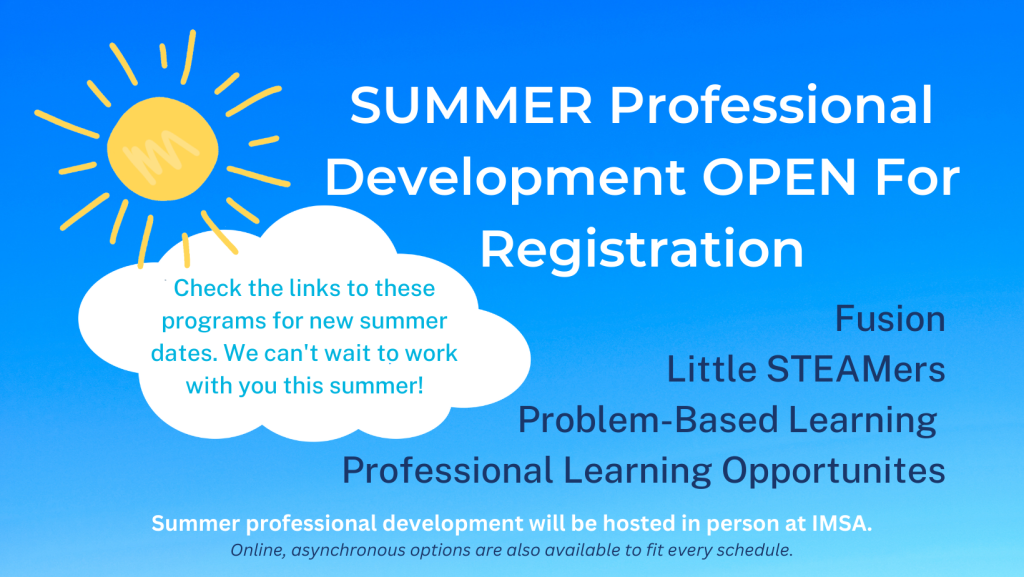IMSA’s Signature Strategy of Professional Development
IMSA offers professional development sessions on mathematics, science, technology, and pedagogy for pre-service and in-service educators and administrators. These professional development opportunities align with IMSA’s signature strategy of learning: Inquiry-Based, Problem-Centered, Competency-Driven, and Integrative. Professional learning opportunities include events held at IMSA, sessions presented at conferences, and workshops delivered in schools across the state and beyond. Educator workshops can be customized to meet any school’s specific needs.
Professional Development Opportunities
.
Highlighted Programs and Events
.

.
.
Specialty Programs
These programs are unique offerings provided by the Statewide Educator Innovation (SEI) team. All programs work well for schools or individual educators who are looking for targeted professional development and curriculum that focuses on STEM topics and modern pedagogy. Find what works best for you.
Fusion Educator Program | Teacher professional development and STEM enrichment program for students in grades 3-8.
.
Early Childhood Programming (Little STEAMers) | STEAM-based enrichment program for early childhood students.
.
Problem-Based Learning (PBL) | Exploring how to design and successfully implement original PBL units unique to one’s K-12 classroom.
.
Next Generation Science Standards | Teacher professional development to help construct NGSS-aligned activities and identify gaps in the science curriculum.
.
.
Curriculum and Resources
Hispanic Heritage Month Curriculum
Description | Celebrate Hispanic heritage in your classroom while engaging in STEM! This curriculum will guide students through the story of how Hispanic communities have influenced American culture through topics related to STEM and the arts. Provides 20 hours of downloadable curriculum, intended for all students from 4th to 12th grade.
Fire Prevention Month Curriculum
Description | This curriculum is focused on the study of STEM in the field of fire science. Students will experience hands-on and inquiry-based activities to develop an understanding of the type of knowledge required to become a firefighter, such as fire tactics, rescue procedures, fire behavior, and combustion, fire scene investigation, innovations of fire prevention, and extinguishment equipment. In addition, students will have a deeper understanding of fire safety by being familiar as to why things happen in a fire and how to manage them.
STEM a la Carte | Short, easy-to-apply lesson plans with unique materials.
.
Artificial Intelligence in K-12 Education | An introduction to AI in K-12 education and additional resources.
.


